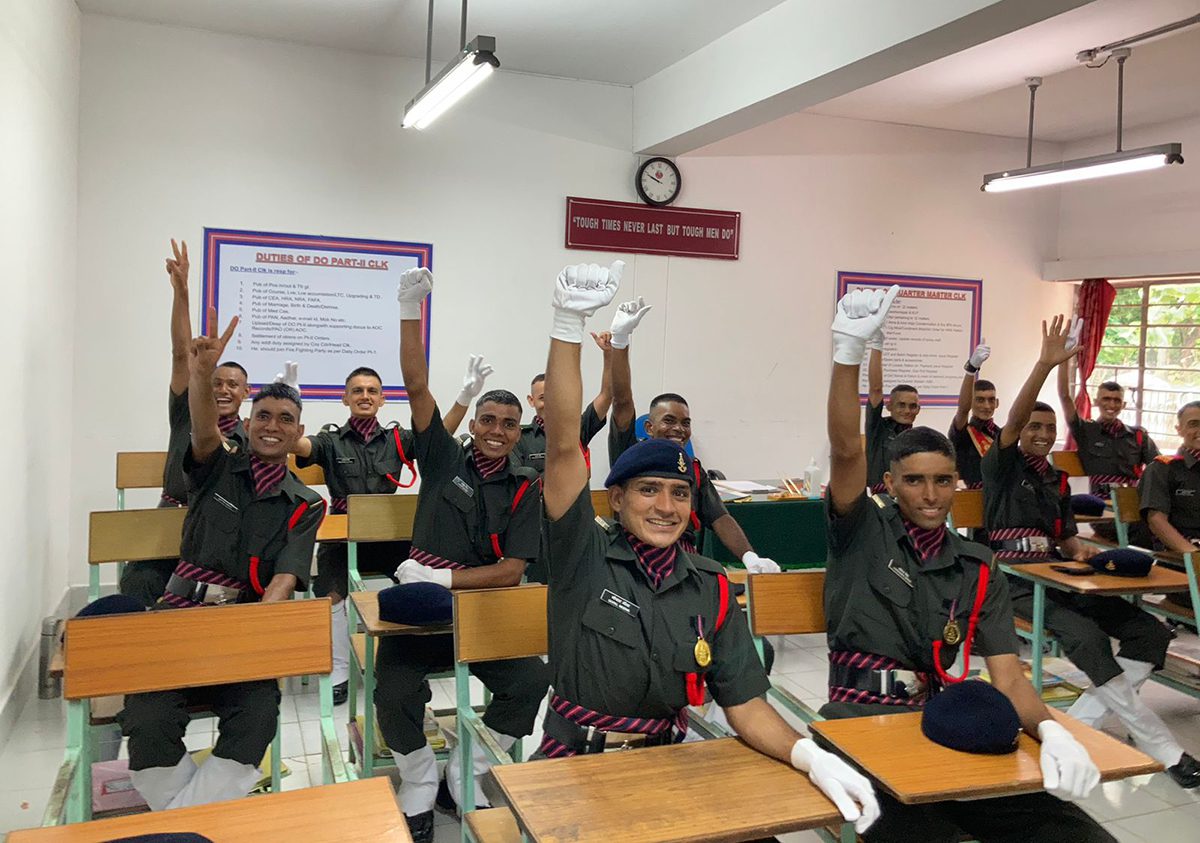Shyamola explores the Indian Army’s Agniveers program, contrasting it with traditional soldiers, discussing their future concerns and proposing solutions, exclusively for Different Truths.
I am teaching English to the third batch of the Agniveer (AV) boys. For those who don’t know, the AVs are the new brand of short-service soldiers for the Indian Army. They are on the rolls for four years, after which some will be retained in the army, while others will be farmed out into the paramilitary forces. A small percentage will be sent off with a lump sum of money to help them start something of their own.
I have been a teacher for more than 40 years and have taught at various levels—right from the UKG to the MBA and enjoyed every bit of it. When I joined this Army Center as a volunteer teacher, five years earlier, I was working with regular soldiers who were to be the clerical staff at various Army units. They were a bunch of happy boys, proud of wearing the uniform, comfortable with the hardcore discipline, and eager to get posted to exotic locales which they had only seen in movies and travel brochures.
The AVs are no different—young, peppy, and eager to learn.
There has been so much noise about the whole program, and I have heard many a (retired) senior officer and his wife discuss the negatives about the whole venture—a sampling:
“They will turn into mercenaries! They will become terrorists!”
“After all, a strong young man trained in weaponry would have to find an outlet for his energy after doing four years of service!”.
And so on…
My answer to all of these was to wait and see.
Given the right kind of skills and exposure, they will fit into society once they have the self-confidence and the kind of information to find their niche.
In one of my early classes, I introduced the burning topic, “What are your plans after four years?”
The older ones were very clear that they had goals.
One was all set to join the police force. Why? He had a ‘chacha’ who was going to ensure he would get in.
Another is all set to leave for Canada, where his brother drives a truck and wants the youngster to join him. Two of them wanted to start something of their own—maybe something to do with transport or computers.
There are some who would prefer to stay in the army. There are others who will fit into the corporate world, where they will adapt to the conditions they meet. Of course, there are some who would prefer to be in quasi-government outfits (with pensions!)
Pensions
From my reading of the AV concept, I understand that the debt burden to the GOI is growing in leaps and bounds, with the majority going into pensions to retirees. But the need for recruits is still there, hence the induction of the AV for a short-term service of four years, with a lump sum bonus at the end of the tenure.
I was very amused when I heard one AV say that he would probably not be able to marry. Why?
“Pension nahin toh koi ladki nahi denge.” (No girl will marry me if there is no pension!)
On the other end of the spectrum is the fear that the lump sum that the AV gets at the end of four years will probably fall under the family’s various pretexts.
My suggestion
We have two very high-ranking business schools in the city. If approached by the Army I am sure a few workshops on banking and finance management can help these entrepreneurs of the future. If they can be taught fiscal management, coupled with their innate intelligence and some grassroots innovative ideas, the support can work wonders.
a) Some grassroots innovations in pedagogy can give the AV a lot of confidence and the strength to go ahead and work on a startup.
b) In the last six months of their tenure, they can be attached to an ongoing start-up on a stipend, away from the army.
c) The simplified basics of fiscal management would need to be taught with the possibilities of initiating startups.
d) heavy doses of soft skills, with emphasis on understanding one’s strengths and developing them would give them the confidence to face the world by themselves.
I wish Project AV all the very best!





 By
By
 By
By
